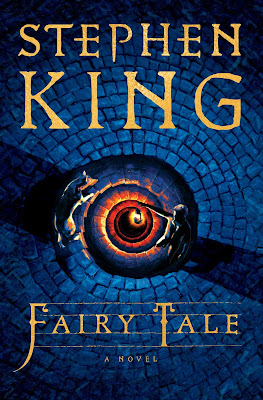Having just read Stephen King's Fairy Tale in time for Halloween, it's appropriate to examine his asides on poor writing included in the book. (BTW, Fairy Tale is a good read with King's typical well-executed character development, plot, and a great finish to the story. But you have like the whole Grimm fairy tale genre before you read his take on it.)
Stephen King doesn't tolerate anything less than crisp prose. When the story's hero, Charlie Reade, tries to read a book about the origins of fantasy and its place in the world matrix ("what a mouthful"), he can only scan it because:
It was everything I hated about what I thought of as "hoity-toity" academic writing, full of five-dollar words and tortured syntax. Maybe that's intellectual laziness on my part, but maybe not.Later on, Charlie tries to focus on a particular chapter in the "origins of fantasy" book about the story of Jack and the Beanstalk but is put off by "the trudging prose, compound-complex sentences that allowed the eye no rest..."
The worst of academic writing has a lot in common with the worst of legal writing. Take these typical blunders:
>Misused words: "penultimate" for "ultimate," because "penultimate" apparently means "really, no kidding, ultimate." Or "utilized" for "use" because "use" is apparently a boring word. Fail.
> Confusion between the use of "which" and "that." I once read a bank contract that never used "that," the author apparently thinking that "that" was always the wrong choice for a conjunction. But some authors like to skip using "that" entirely as in "I knew the candidate was the wrong choice," instead of "I knew that the candidate was the wrong choice." Fail.
> User of "filler" words that add nothing, e.g., "as well," "prior to" (use "before") and "a 30-day period." Or especially for lawyers, "hereby," "witnesseth," "therefore" or even worse, "therefor," and "herein." Fail.
> Waterfall paragraphs. Because in academic as well as legal writing, the author must really know the subject if they write in long sentences embedded in long paragraphs with a lot of words ending in "ize." Fail.
I don't have a good solution for poor writing. With the advent of the internet, where anyone can write and publish anything within seconds without editing, the problem is rife - and likely to grow. And folks' attention spans seem to be declining; we want our information (credible or not) in short bursts. Prolonged reasoned discourse is in short supply.
Does sloppy writing reflect sloppy thinking? Or is it the other way around? No matter, they incite each other, whether in the field of law drafting contracts or in academia producing scholarly works.
But (spoiler alert) good triumphs over evil in Fairy Tale, so perhaps more good writing reflecting critical thinking will emerge over time. We can all do our part by calling out the abuse of the written word where we see it!

Comments